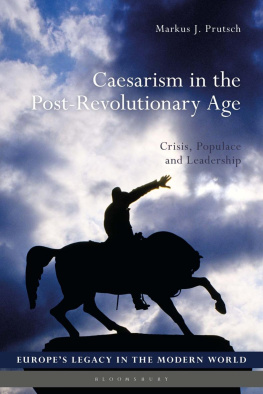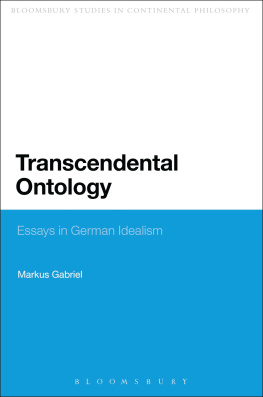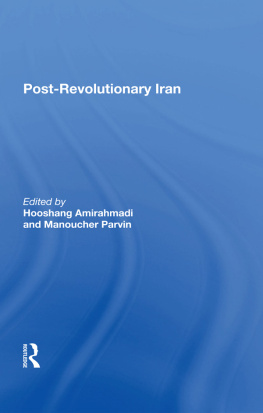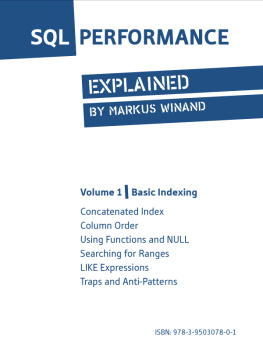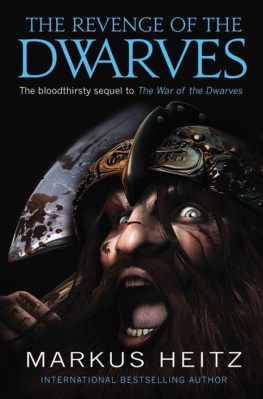Caesarism in the
Post-Revolutionary Age
Europes Legacy in the Modern World
Series Editors: Martti Koskenniemi and Bo Strth (University of Helsinki, Finland)
The nineteenth century is often described as Europes century. This series aims to explore the truth of this claim. It views Europe as a global actor and offers insights into its role in ordering the world, creating community and providing welfare in the nineteenth century and beyond. Volumes in the series investigate tensions between the national and the global, welfare and warfare, property and poverty. They look at how notions like democracy, populism and totalitarianism came to be intertwined and how this legacy persists in the present day world.
The series emphasizes the entanglements between the legal, the political and the economic and employs techniques and methodologies from the history of legal, political and economic thought, the history of events, and structural history. The result is a collection of works that shed new light on the role that Europes history has played in the development of the modern world.
Published
Historical Teleologies in the Modern World, Henning Trper, Dipesh Chakrabarty and Sanjay Subrahmanyam
Europes Utopias of Peace, Bo Strth
Political Reform in the Ottoman and Russian Empires, Adrian Brisku
European Modernity: A Global Approach, Bo Strth and Peter Wagner
The Contested History of Autonomy, Gerard Rosich
Forthcoming
Social Difference in Nineteenth-Century Spanish America: An Intellectual History, Francisco A. Ortega
Orientalism, Philology, and the Illegibility of the Modern World, Henning Trper
Contents
Preface
To be able to say thank you is undoubtedly the most pleasant task related to the finalization of a long-term project as work-intensive as this present monograph. At the same time, however, there is the inherent risk of not taking adequate note of each and every one who has contributed in one way or another. I owe my thanks to a great many people for helping me in the various stages of researching and writing this book and the underlying habilitation thesis submitted at Heidelberg University in early 2018, on which its findings are largely based. Even if I fail to mention all of them here by name individually, my gratitude is no less sincere.
I would like to express my profound and collective thanks to all the colleagues, friends and companions who over the last few years have made the present study possible with their generous advice and support, be it in the form of valuable recommendations regarding structure and content, suggestions for sources and literature, or their active help in commenting on, revising and editing the draft manuscript. A special acknowledgment in this context to: Roisin Boyd, Deborah Flsche-Forrow, Kelly L. Grotke, Urban Kirchler, Lars Lehmann, Andrea Nicole Maier and Johan Rooryck.
I am particularly indebted to the European Research Council, which supported my preparatory work on this book in the context of the research project Europe 18151914 at the University of Helsinki, and to Volker Sellin, who has accompanied my academic life since the beginning of my university studies, and who as the diligent mentor of my habilitation continued to be the committed and conscientious while at the same time unassuming teacher I have always perceived him as.
Above all, my thanks go to my entire family, who have been an immeasurable mainstay for my research, above all Lisa, Valentin and Alva: Danke von Herzen for everything. Insufficient though this may be to compensate for the stresses and strains they were prepared to shoulder for this book to reach the stage of publication, I would like to dedicate my humble work to them.
Brussels, March 2019
Introduction
1.1 Object of Research
Debates about the legitimacy and essence of political rule and the search for ideal forms of government have been at the very heart of political thought ever since its beginnings in the Ancient World. Discussions on how a balance between just and effective government might best be achieved have been particularly intense and controversial, as have those on the need and danger of dictatorship, the scope and limits of democracy, and on whether there might be some sort of natural sequence of regime types. The latter view, for example, was articulated within the various cyclical theories of political evolution (anacyclosis), the first of which date back to Greek and Roman constitutional theory.
The richness of these debates stands in contrast to an often astonishingly simplistic and ahistorical view on these matters in the post-Second World War era. The idea that todays Western world represents the outcome of a more or less linear development towards liberal and representative democracy, in which specific inalienable values are upheld, and that the rest of the world is inescapably animated by and moving towards that model, has become deeply entrenched in Western political rhetoric and public debate since 1945. In other words, that view that the nature of (Western) democracy is essentially geared towards some sort of finality antithetical to dictatorship has become commonplace. Even so, the teleological assumption of a long-term breakthrough of liberal democracy from the eighteenth century onwards is one-sided and at the same time problematic, because it disregards the complexity of historical developments, and also neglects both the explicit and the implicit tensions, contradictions and conflicts that (Western-style) democracy continues to face even today.
The shortcomings of what may be labelled a democratization imperative are evident in the difficulty of providing persuasive explanations for the totalitarian experiences of the twentieth century, since they construing them simply as temporary aberrations or historical exceptions that prove the democratic rule is far from satisfactory. On a contemporary global scale, they are also empirically mirrored by the fact that political systems considered undemocratic or only partly democratic still outnumber those regarded as fully democratic, with a clear tendency toward diminishing global democracy over the last few years,authoritarian polity on the other, mutually exclude each other? And, perhaps most important, do the masses really desire democracy as if by nature, to the exclusion of other possibilities?
On closer examination, the borderline between democracy and non-democracy to use the perhaps least prejudiced counter-termseems less clear than might first appear, as does the appeal of democracy as such. It can plausibly be argued that we are living through a distinct crisis of democracy in its liberal-representative form, something evident in growing alienation from parliamentarism, as indicated by widespread public distrust towards parliamentary institutions and procedures. However, also democracy as such is exposed to constant and serious threats. Subtle encroachments on public and political liberties, as well as more or less obvious attempts to steer public opinion by instrumentalizing the media may be cited as examples, alongside widespread susceptibility to populist politicians claiming to be the voice of the people or the crisis manager nations need, which frequently corresponds with openness to strong leadership.
Such openness is not exclusively found on the periphery, where the examples of it remains the case that these developments have been undertaken by democratically elected governments entrusted with a majority in parliament. One might argue that politics does not necessarily reflect what electorates originally wanted their governments to accomplish, or that it is merely specific conditions such as a brief experience of post-dictatorial government that favor the authoritarian. But the most convenient explanations are not always the most sustainable ones. To contrast an innocentor possibly inexperiencedelectorate with a disobedient government, or to portray Hungary, Poland and other sinners as special cases, is one such convenient view and does not reflect the intricacies of our contemporary world, where (liberal) democracy has been put on the defensive.


